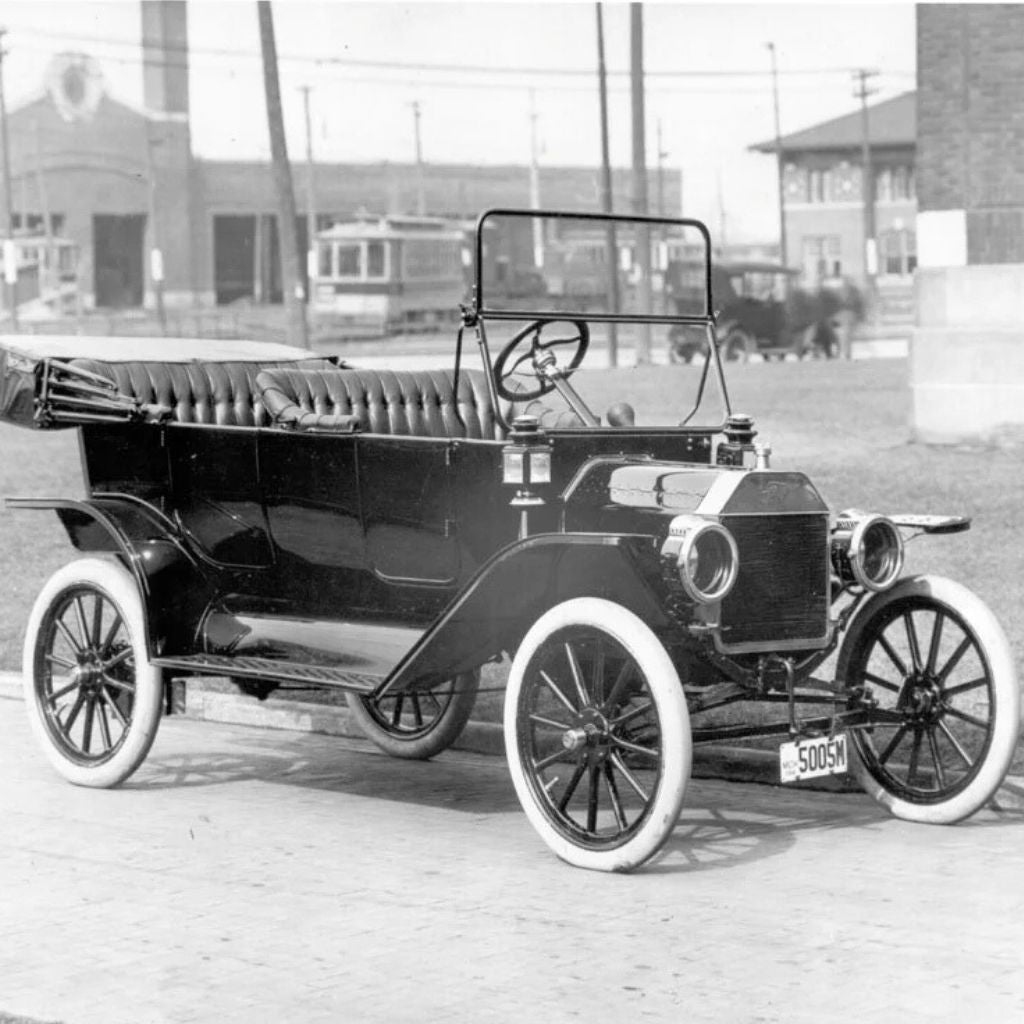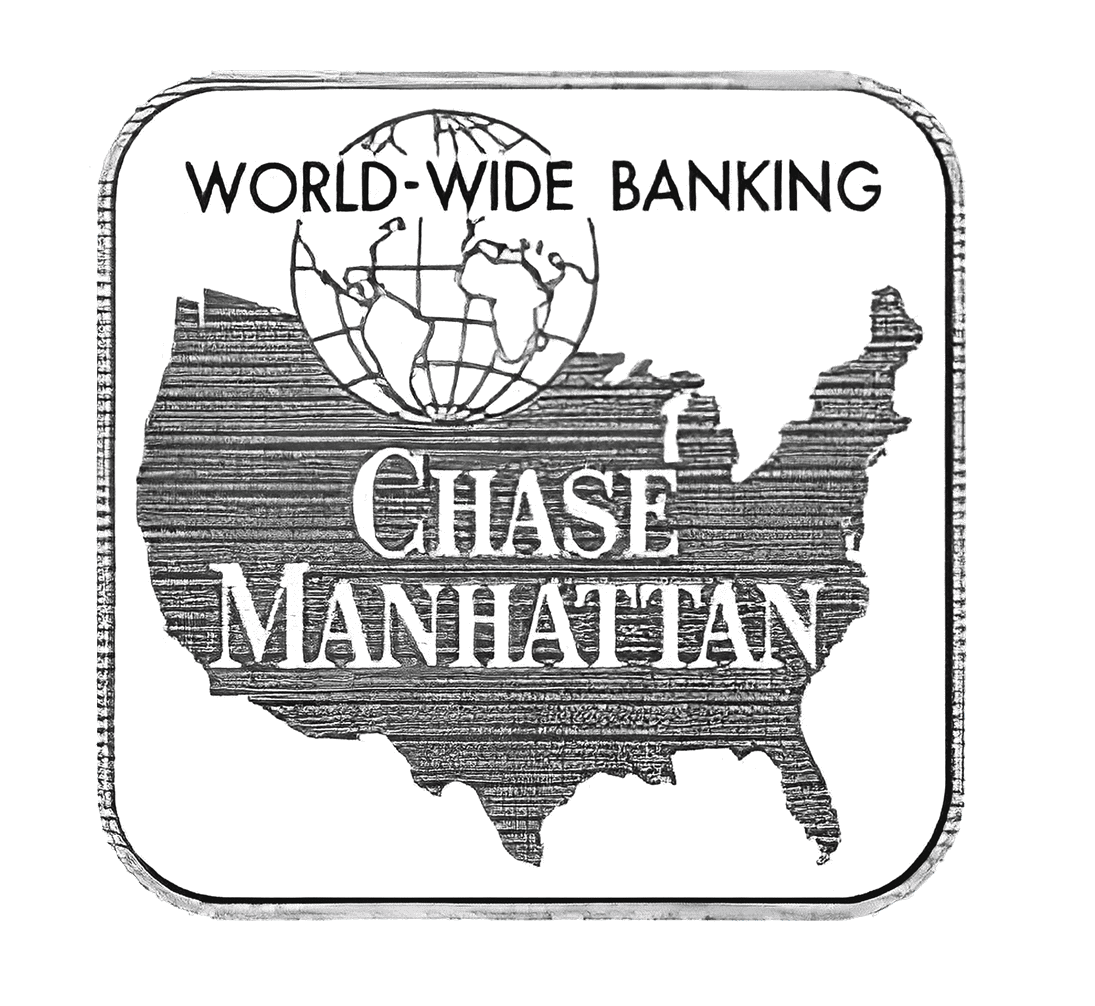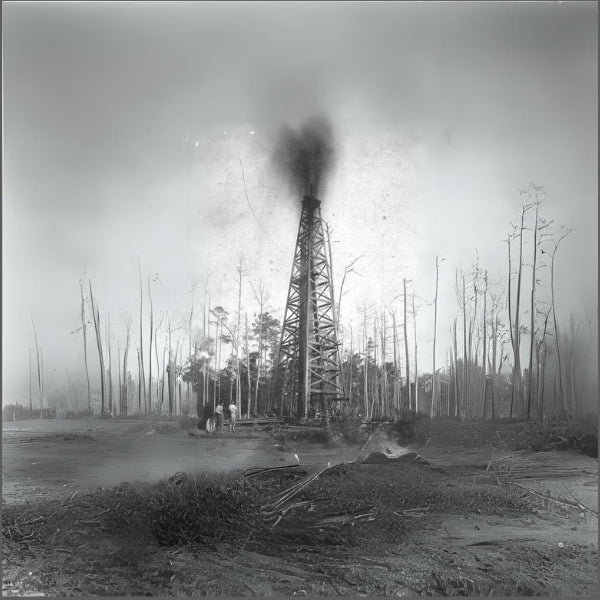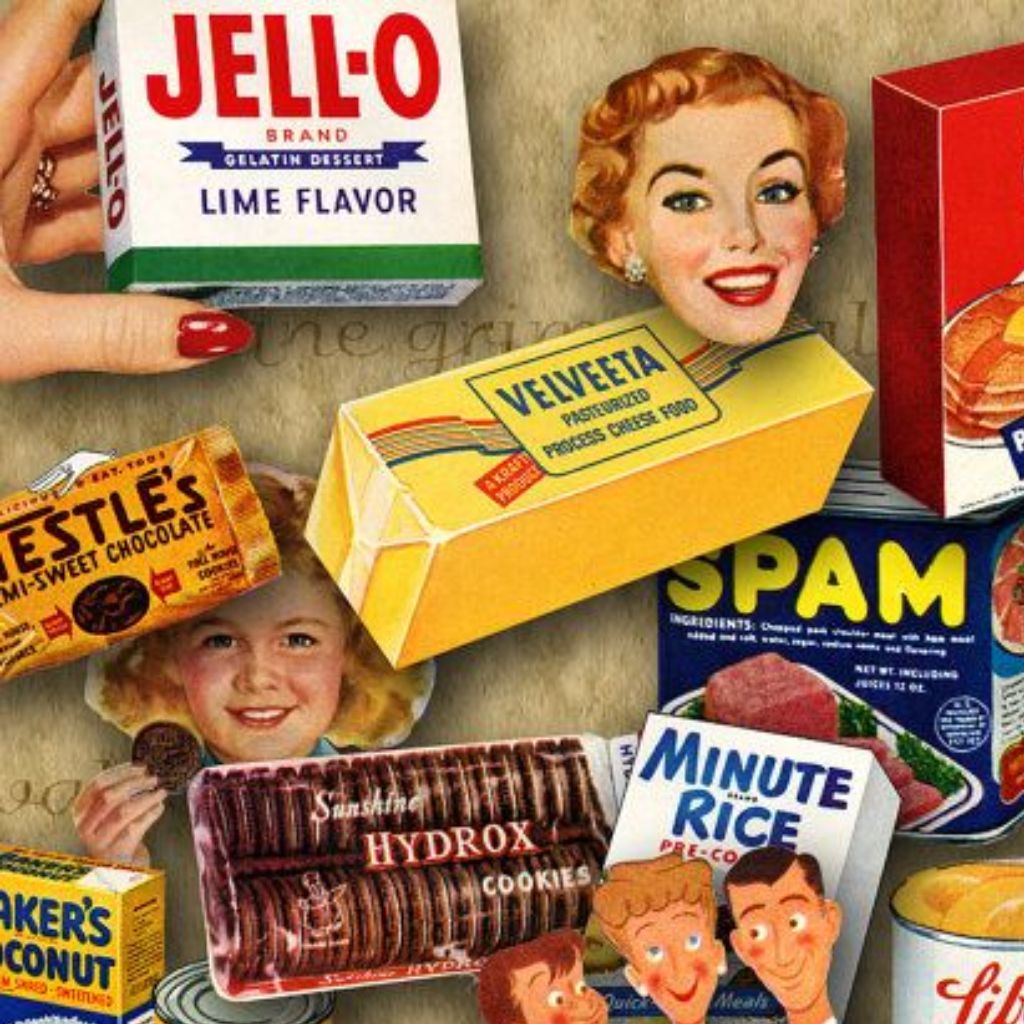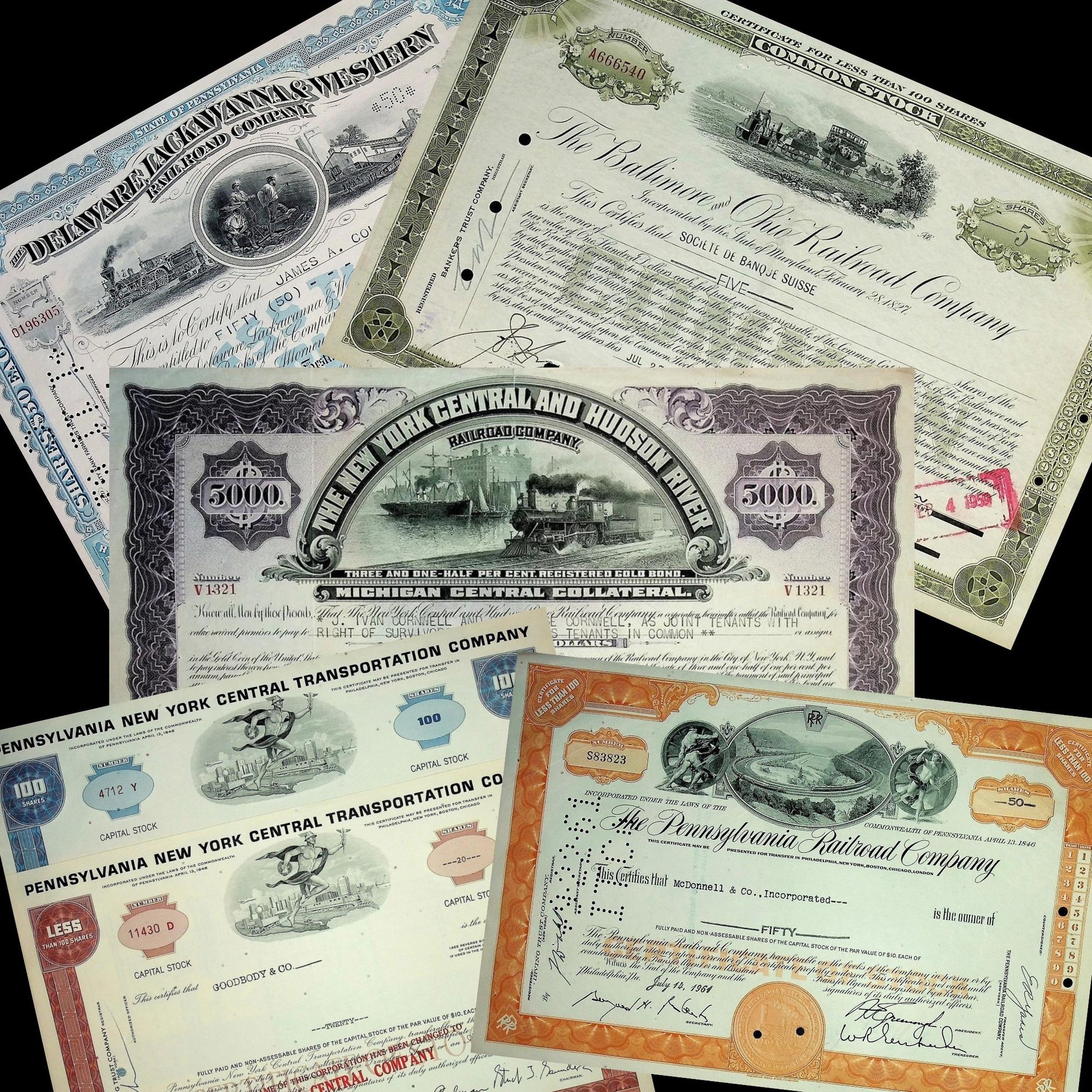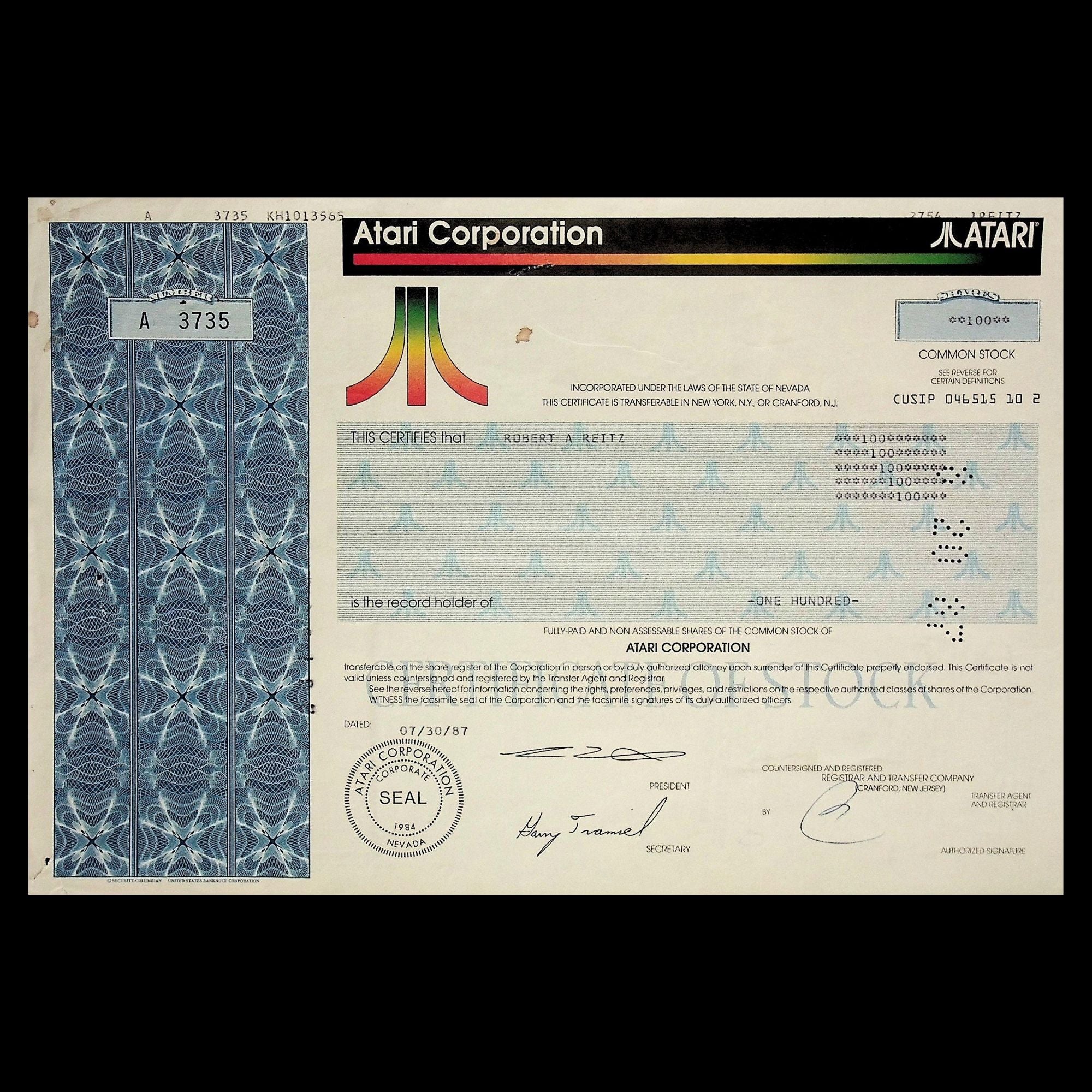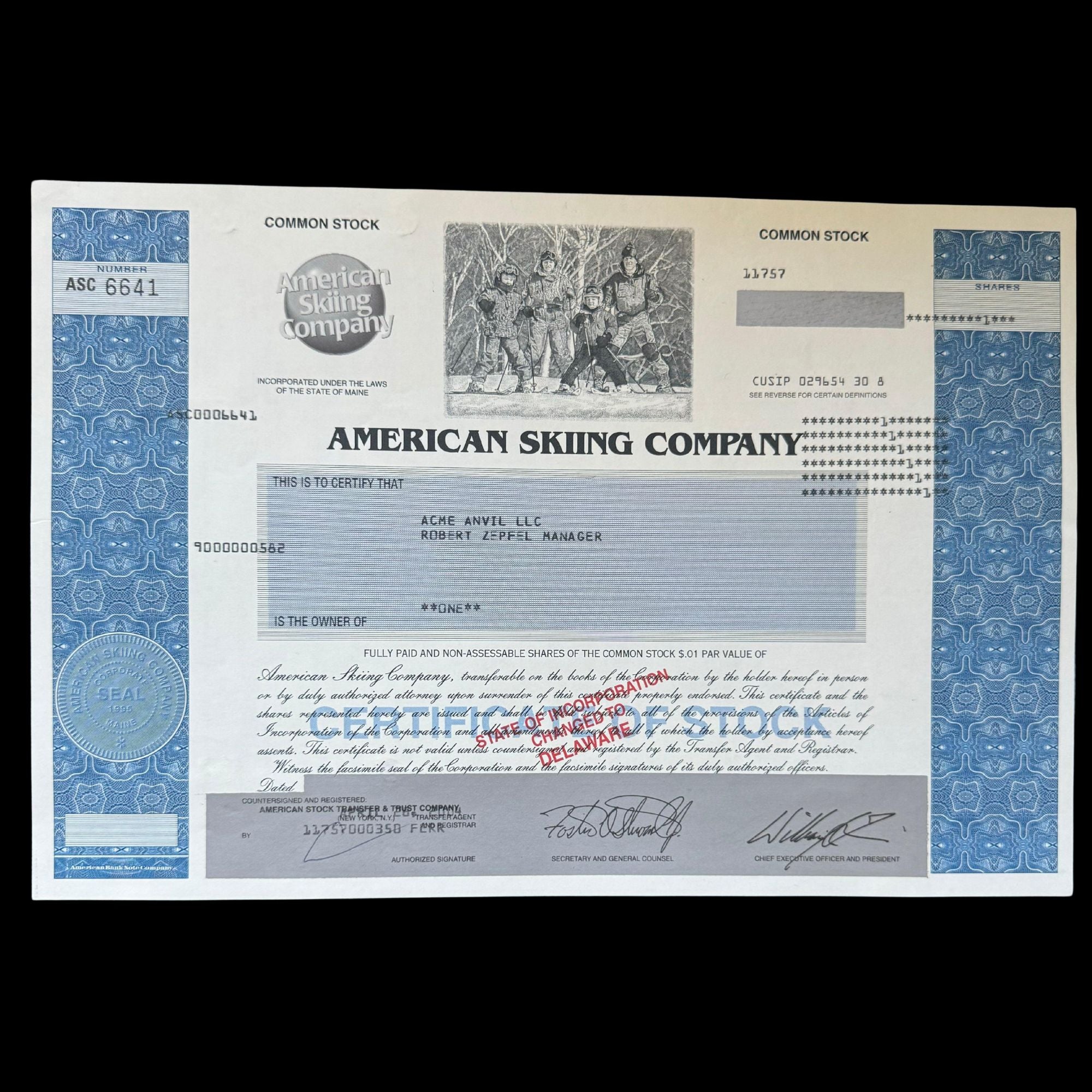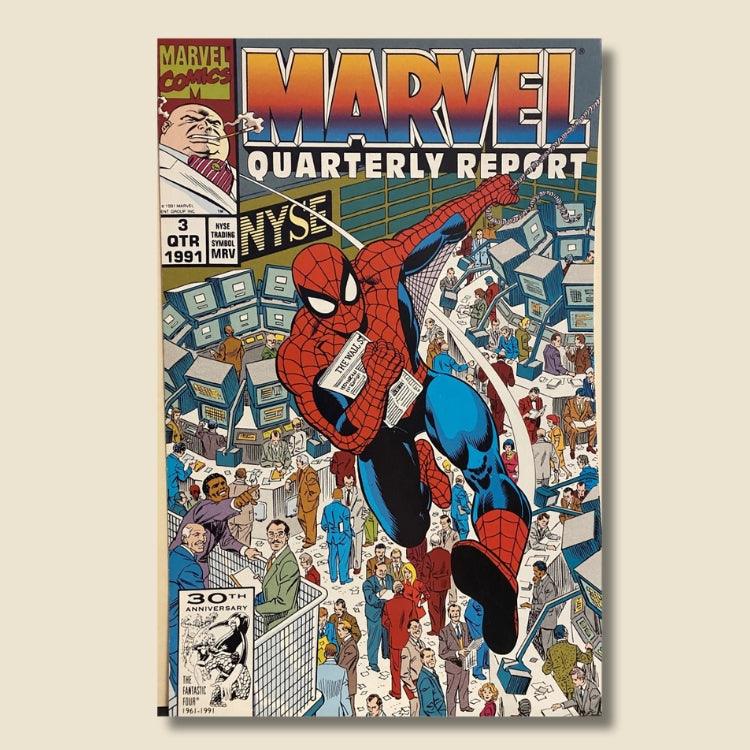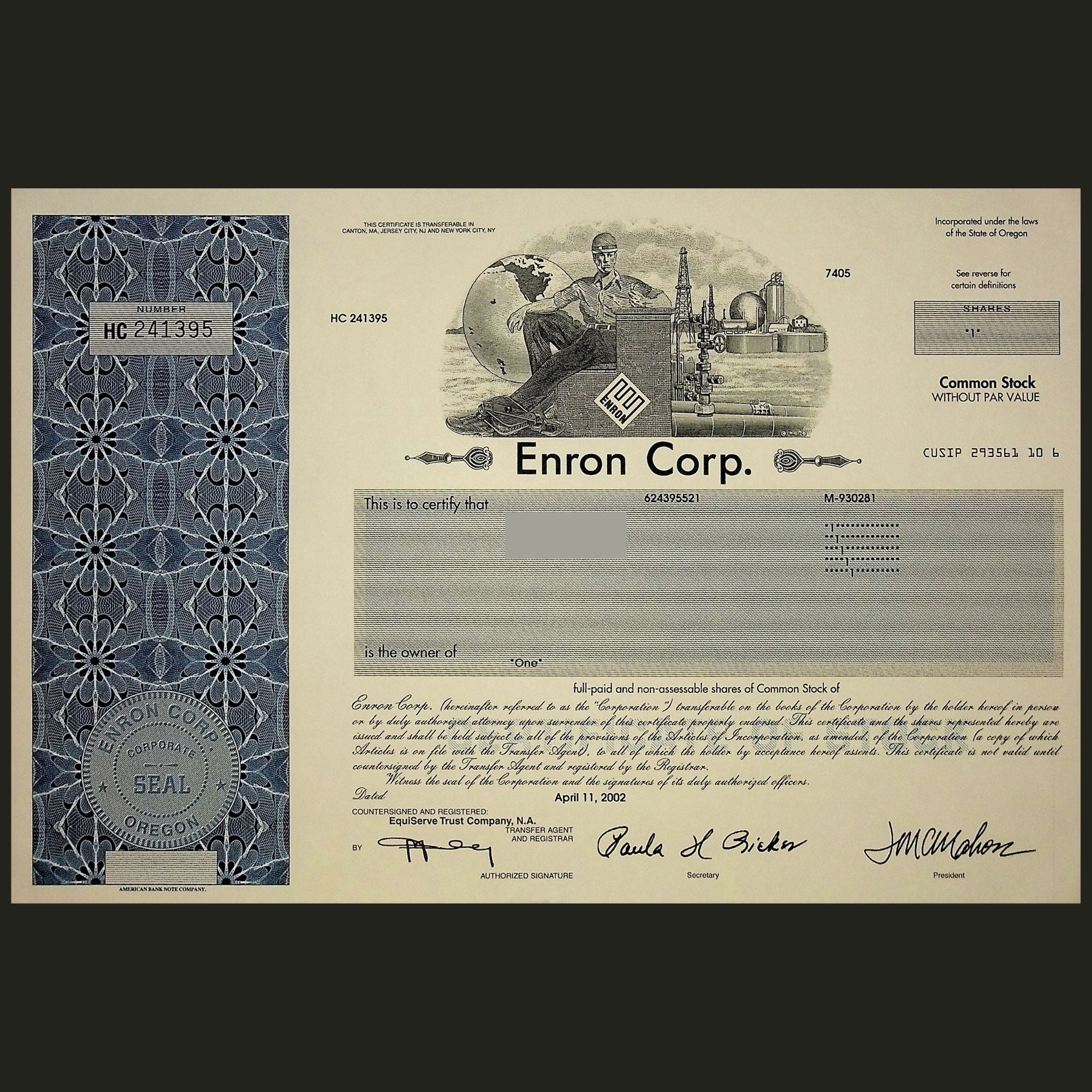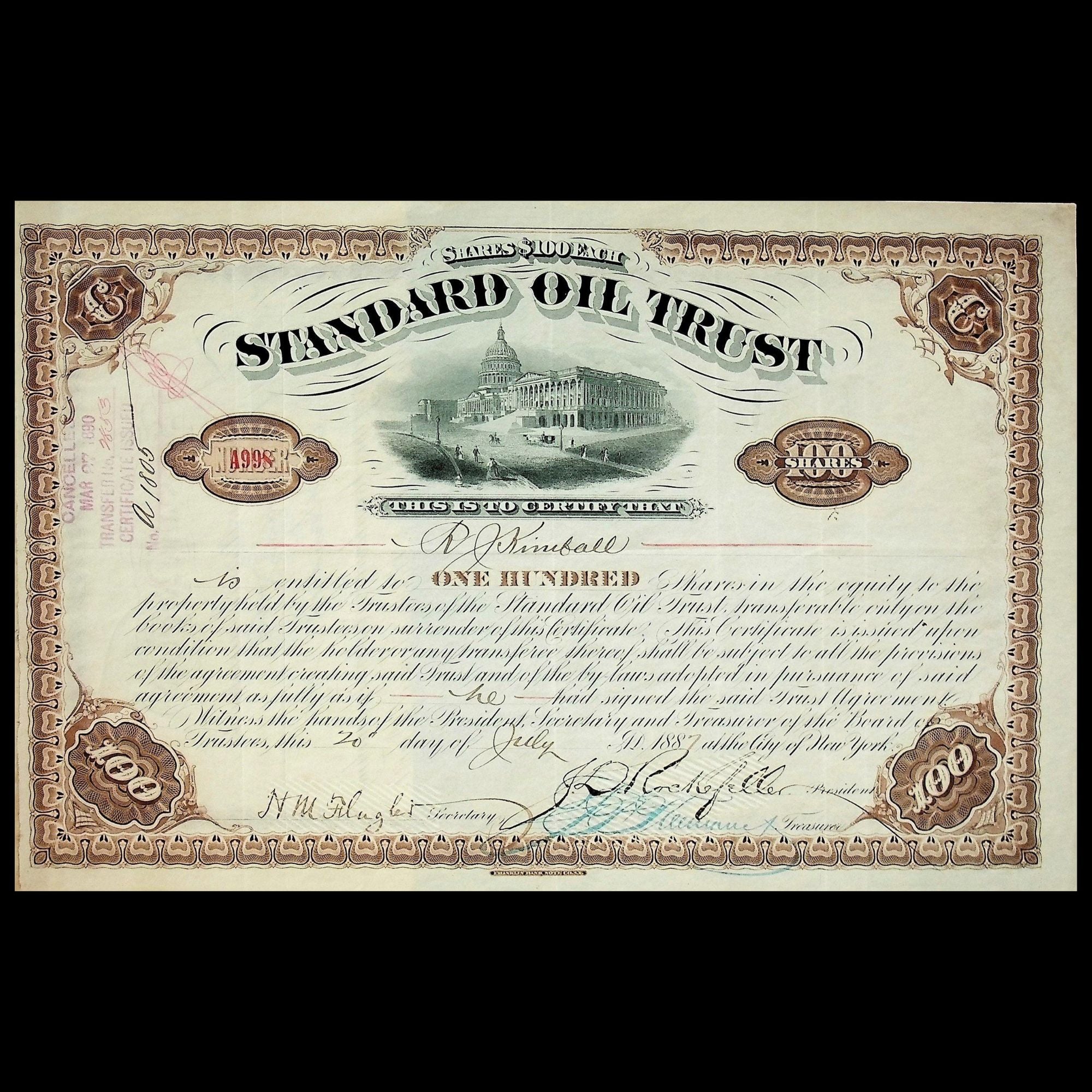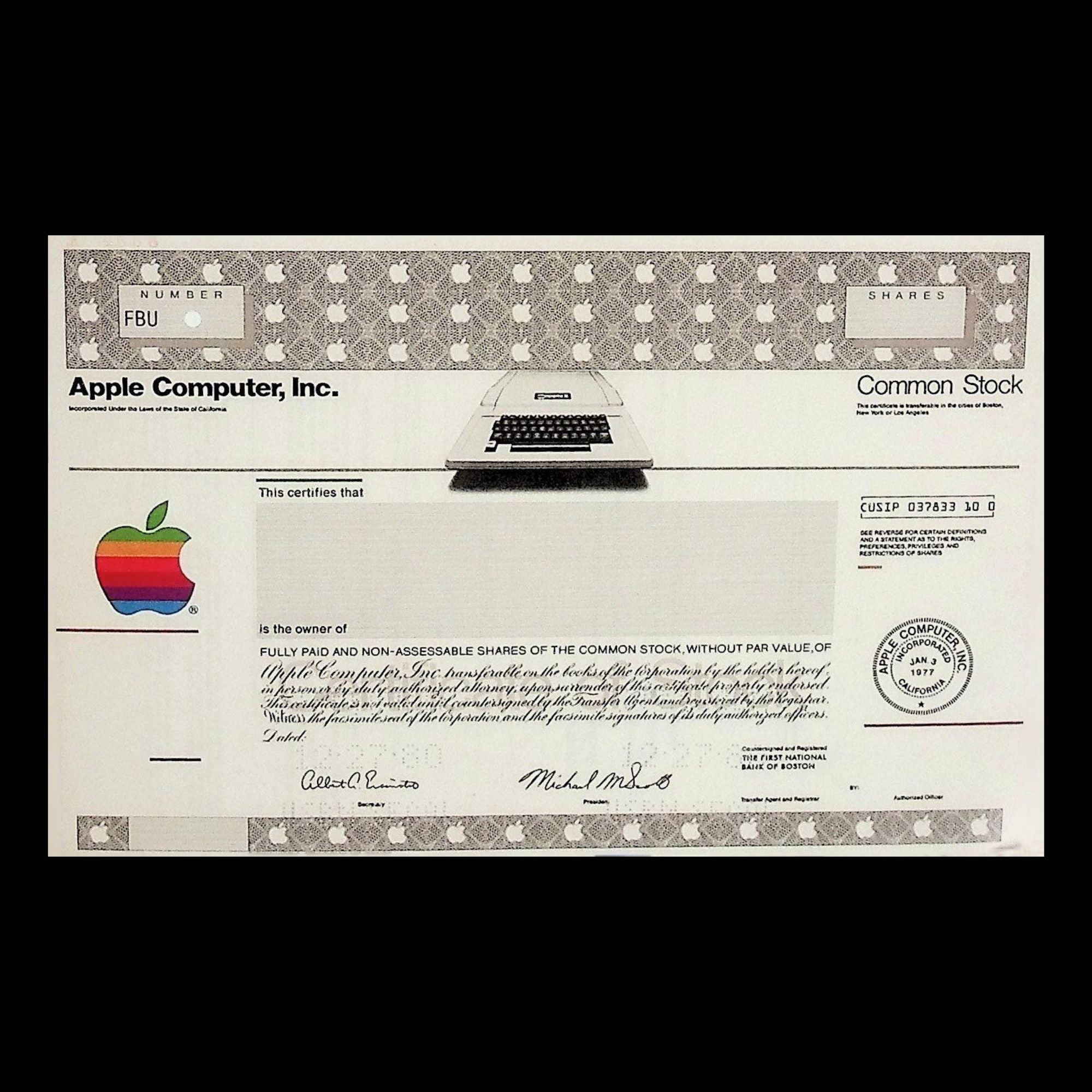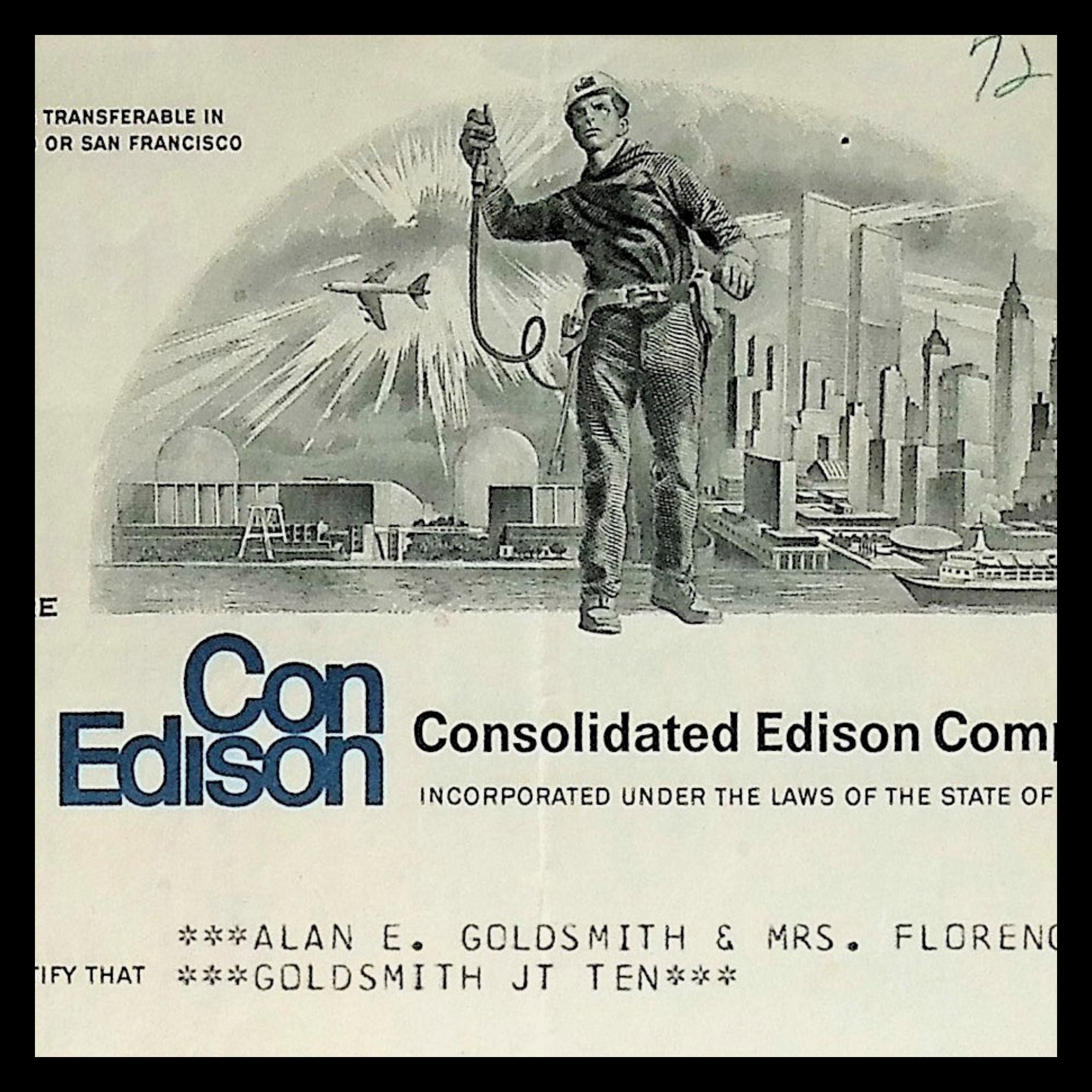The Kendall Company (now Colgate-Palmolive) Stock Certificate from 1960s
The Kendall Company (now Colgate-Palmolive) Stock Certificate from 1960s
Couldn't load pickup availability
Are the certificates authentic?
Are the certificates authentic?
Yes, all of the certificates we sell are authentic stock and bond certificates unless otherwise mentioned in the description. At one point in time, this certificate represented a share of of the company, or a bond receipt. These certificates have been removed from circulation and digitalized, as seen by cancellation holes, stamps and writing on the certificate. We offer these certificates as a collectable item, not a security.
This blue stock certificate from The Kendall Company, issued in 1969, features cancellation holes, stamps, and handwritten annotations, reflecting its authenticity and historical use. Offered as a collectable.
The Kendall Company was a prominent textile manufacturer founded in the early 1900s by Henry P. Kendall. Henry Kendall was a pioneer in Scientific Management, applying systematic approaches to improve efficiency and productivity in manufacturing processes. This innovative management style significantly contributed to the company's success and growth in the textile industry.
Incorporated in Massachusetts, The Kendall Company became known for its high-quality textile products, including medical supplies and consumer goods. The company's reputation for excellence in textile manufacturing made it a significant player in the industry.
In 1972, The Kendall Company was acquired by Colgate-Palmolive, a major global consumer products company. This acquisition marked the end of Kendall's independent operations but allowed Colgate-Palmolive to expand its portfolio into the textile and medical supply sectors.
Materials and care
Materials and care
Here are some quick tips to preserve your certificate for decades to come.
Paper quality: Stock certificates were printed on a variety of certificate paper dating back to the mid 1800s. Most of these vintage collectable certificates have signs of used & wear , cancellation holes, pencil / pen writing, stamps, staples, adhesives, slight rips, missing coupons and other features.
Handling: Always handle the certificate with clean, dry hands or use cotton gloves to avoid transferring oils and dirt from your skin onto the paper.
Storage: Store the certificate in a cool, dry place away from direct sunlight, which can cause fading. Use acid-free folders or archival-quality plastic sleeves to protect it from moisture, dust, and physical damage.
Framing: If displaying the certificate, use a frame with UV-protective glass to prevent light damage. Ensure the certificate is mounted using acid-free materials to avoid any chemical reactions that could degrade the paper over time.
Avoid Exposure: Keep the certificate away from direct sun, extreme temperatures and humidity, which can cause the paper to warp or deteriorate. Avoid exposing it to pollutants, such as smoke or chemicals, which can cause discoloration.
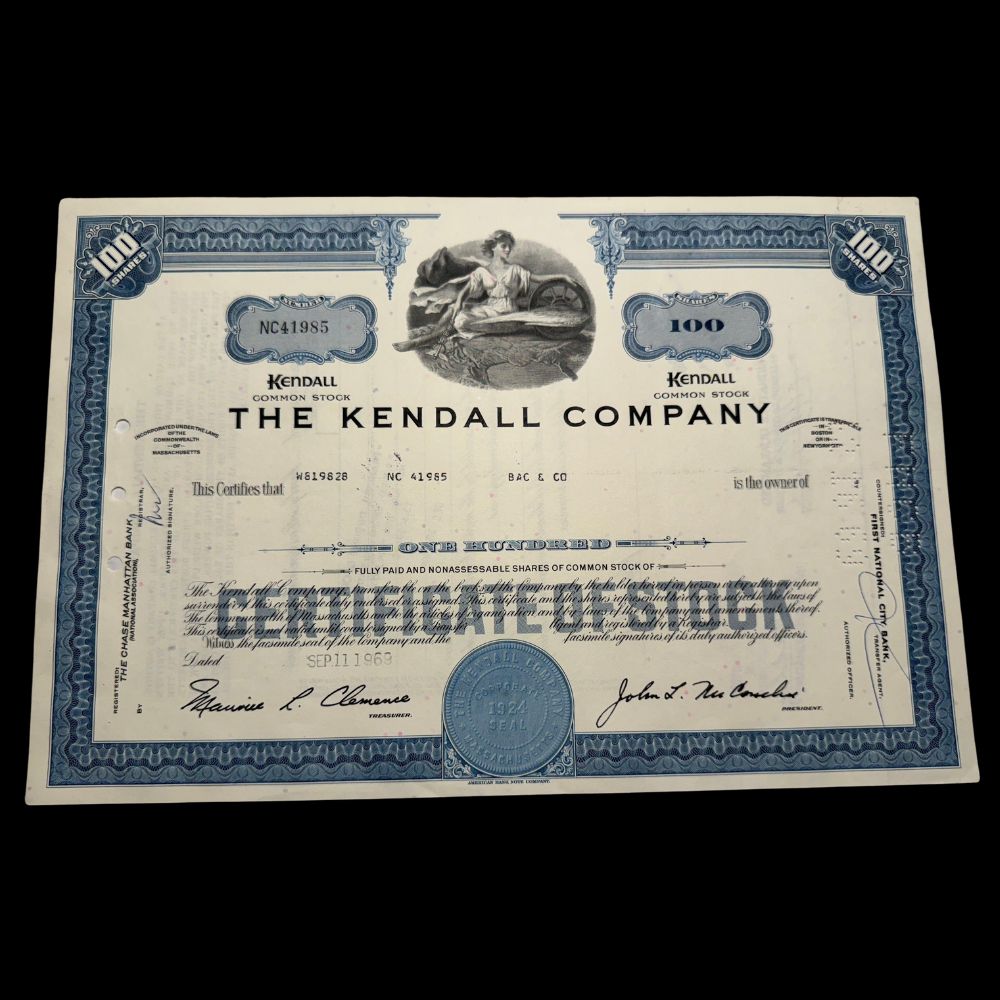
On orders over $50
Or your money back
Trust us to build their collection
Secure payment with all major providers
Trusted By Thousands of Collectors
Let customers speak for us
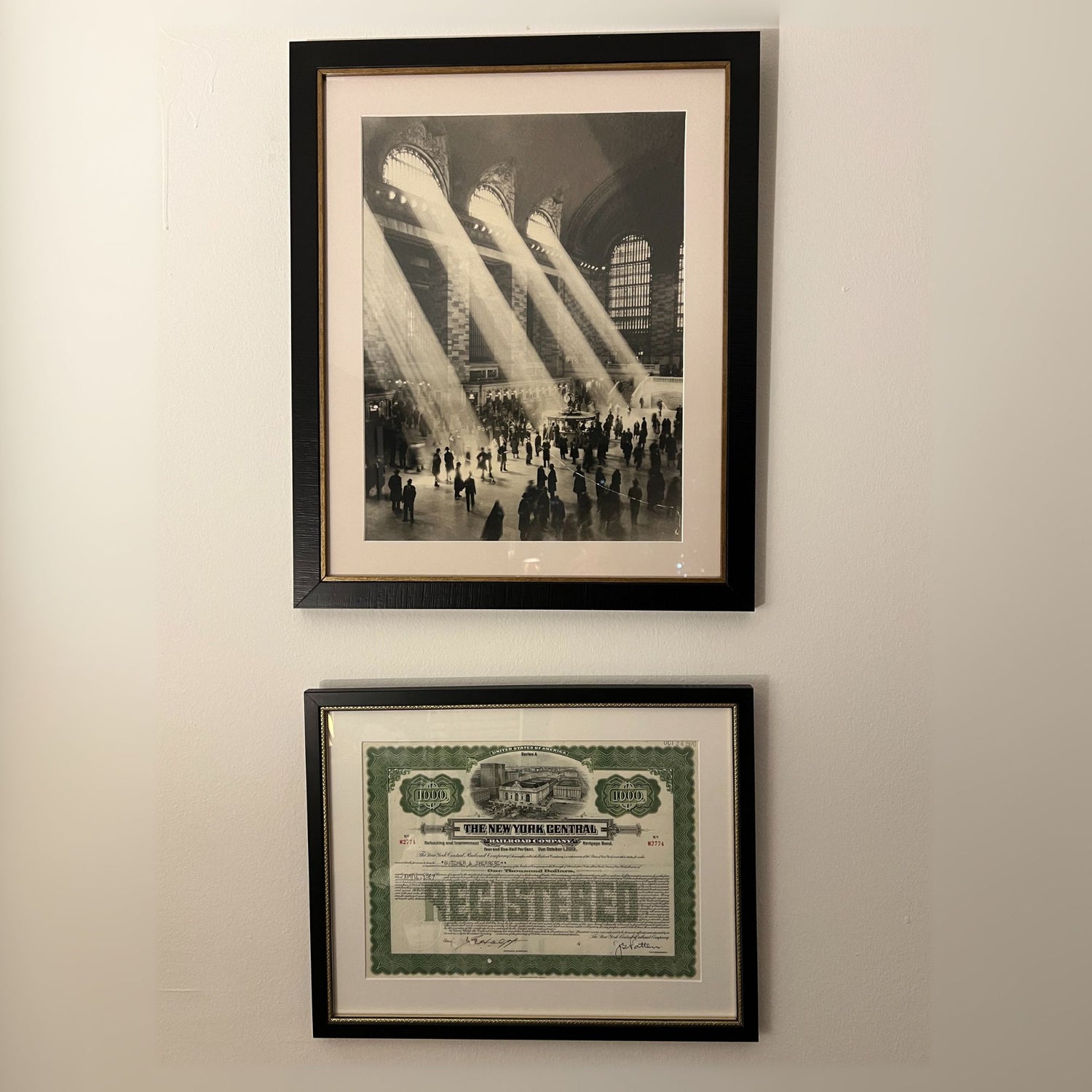
Art with a Backstory
Every Certificate Tells A Story
Turn rare stock and bond certificates into timeless décor. Piece showcases bold colors, engravings, and historic signatures perfect for an office, library, bar, common area, museum & more.
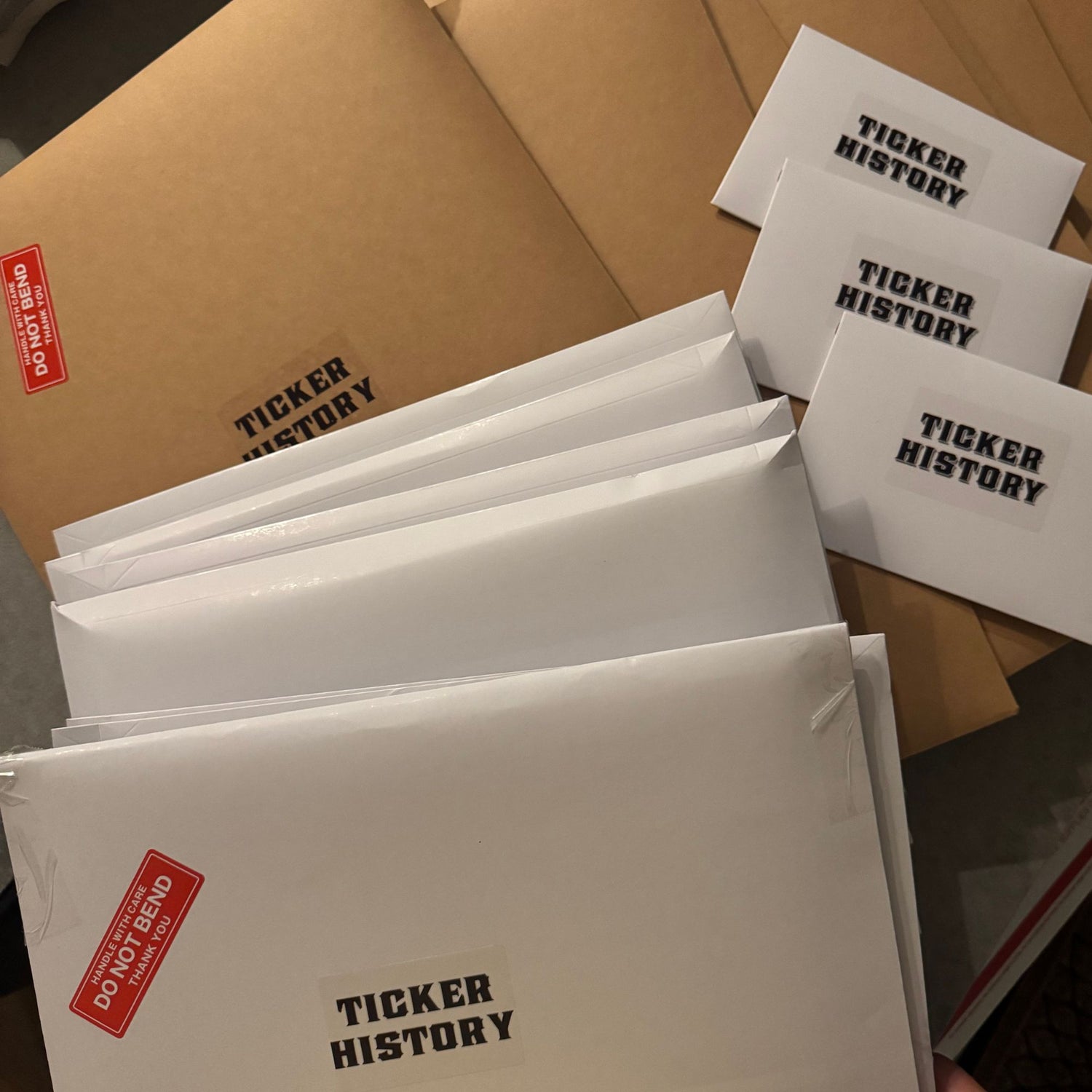
Orders Ship Daily
Direct From Wall Street's Archives
Orders are shipped flat with care, tracked & insured with USPS, in a strong, rigid, protected envelope. Daily fulfillment Monday - Thursday from NYC.
Railroad Stock & Bond Certificate Collectable Bundle Five Pack - 4x Stocks & 1x Bond
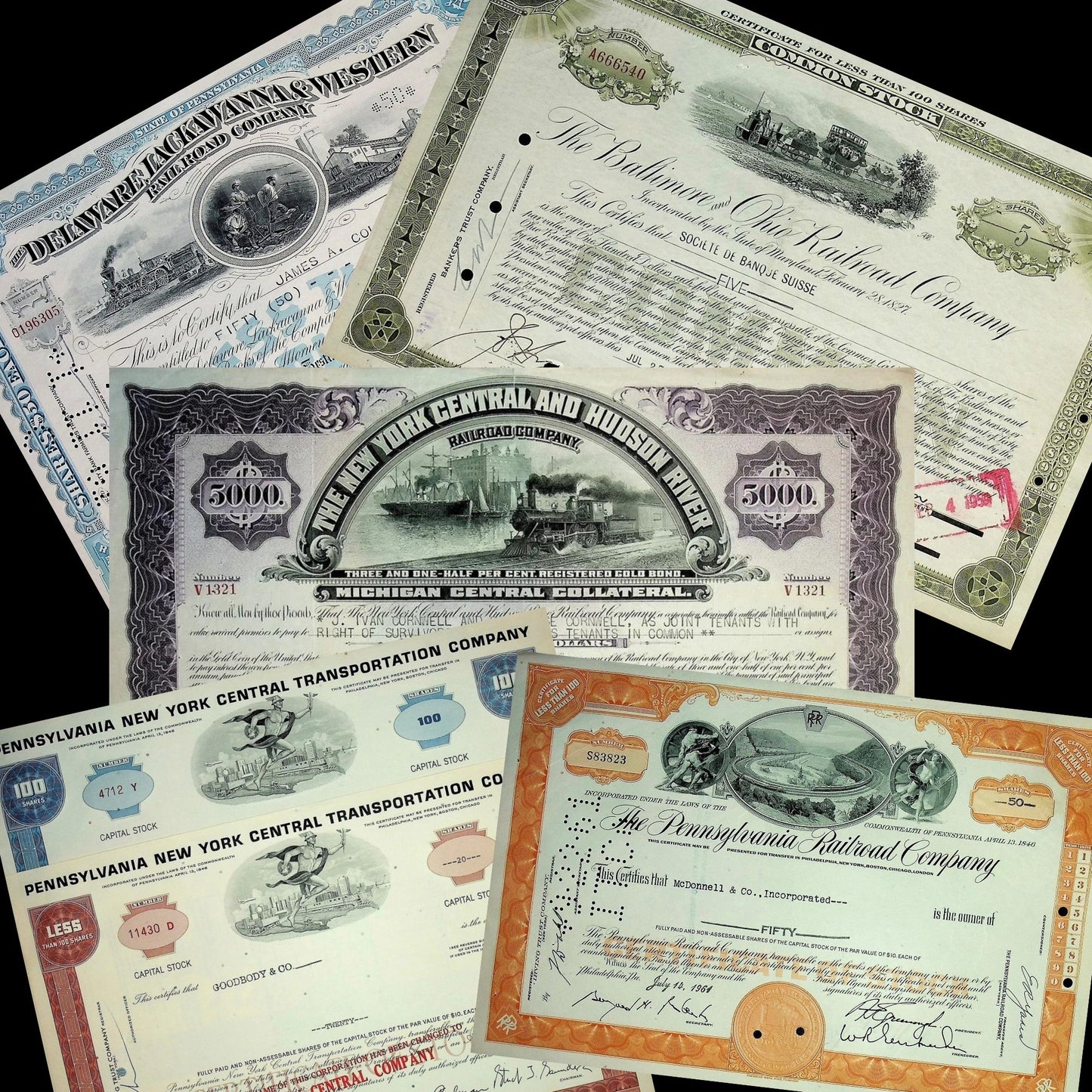
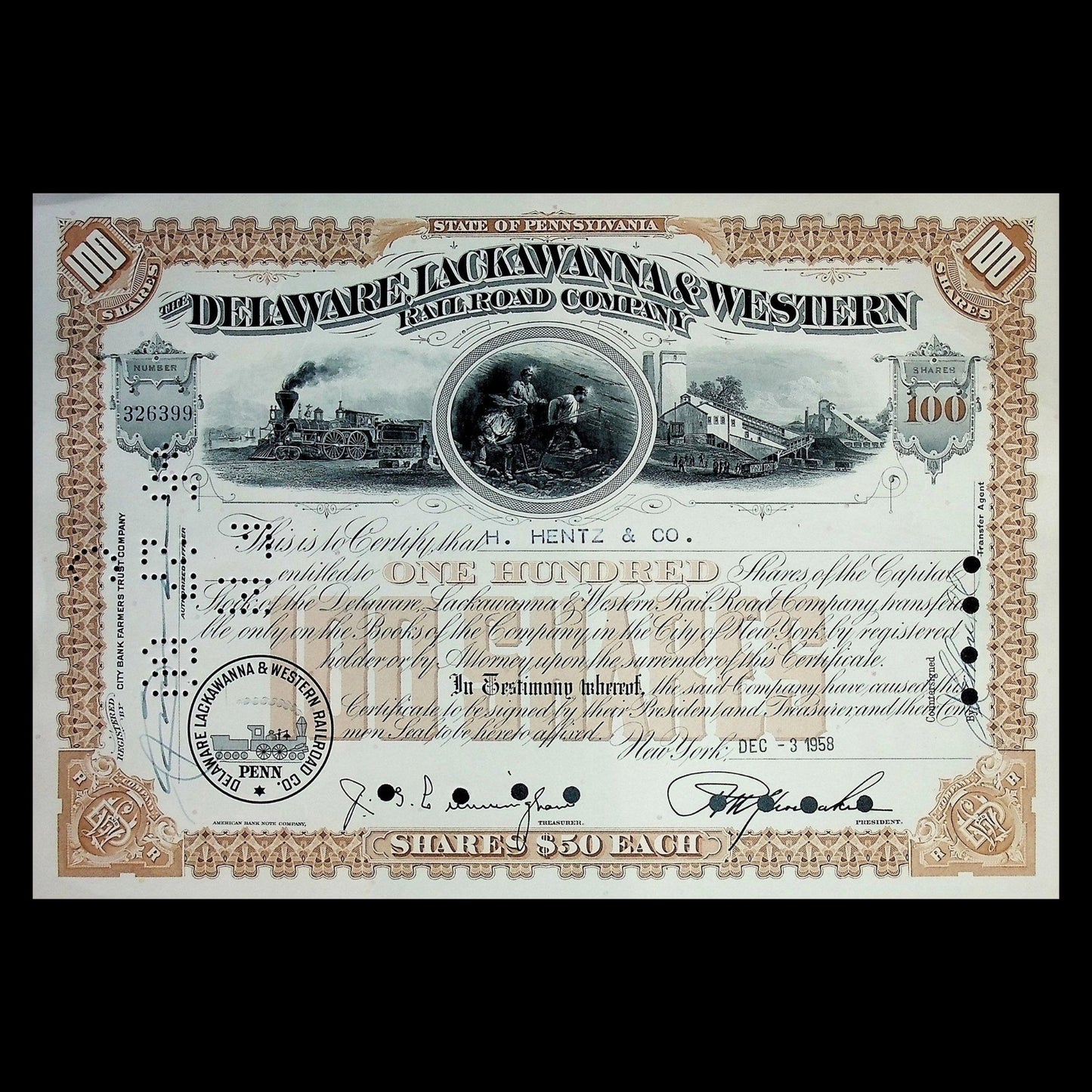
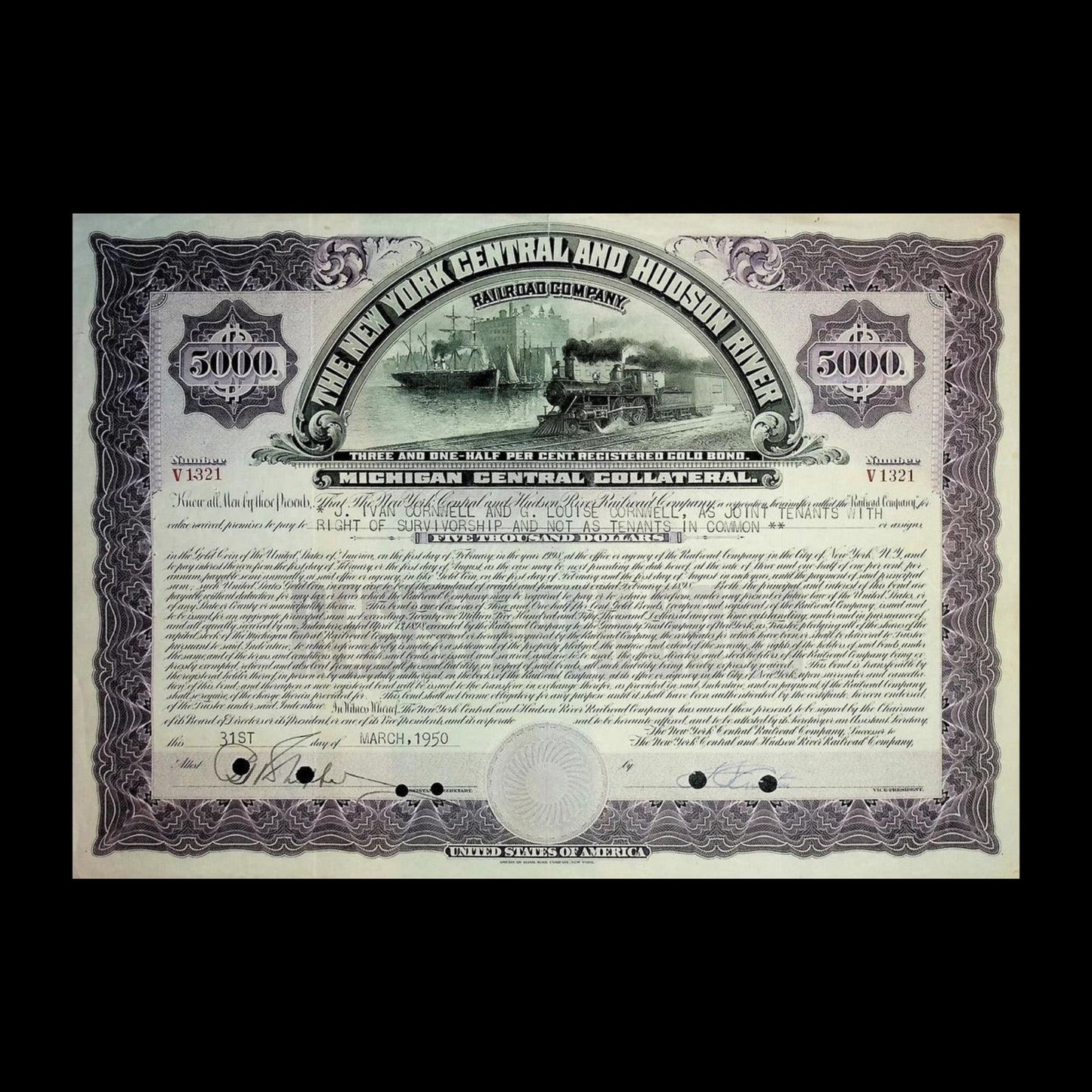
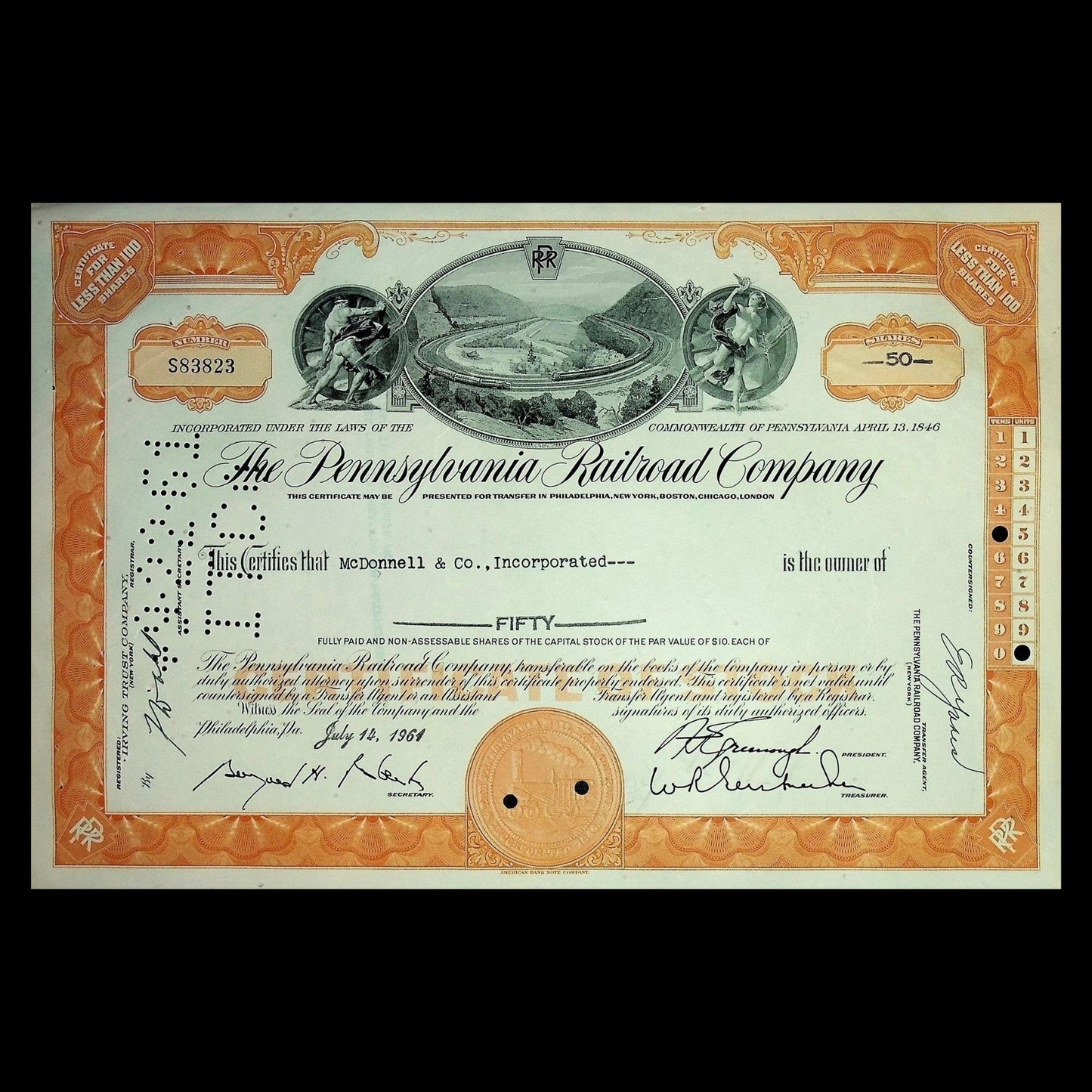
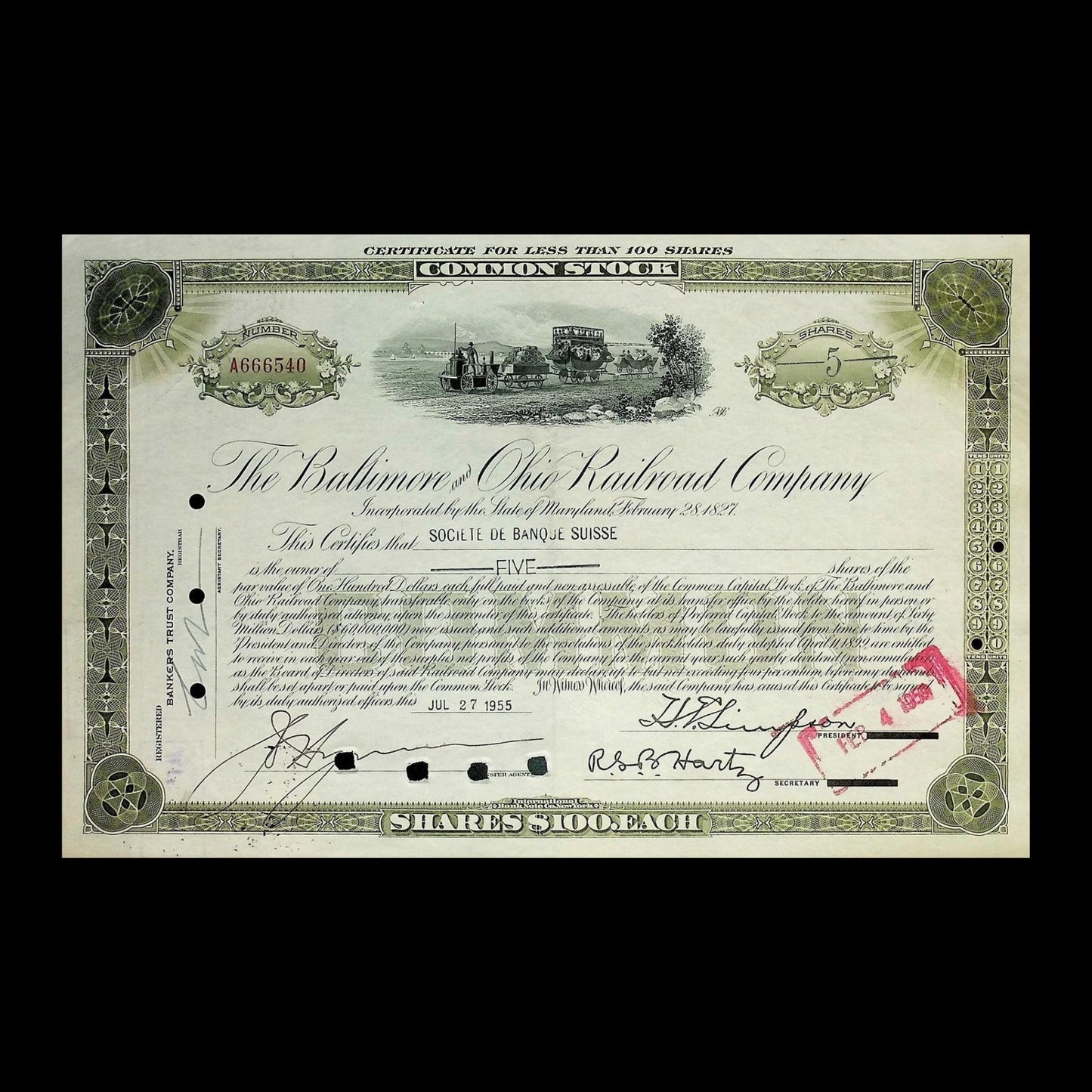
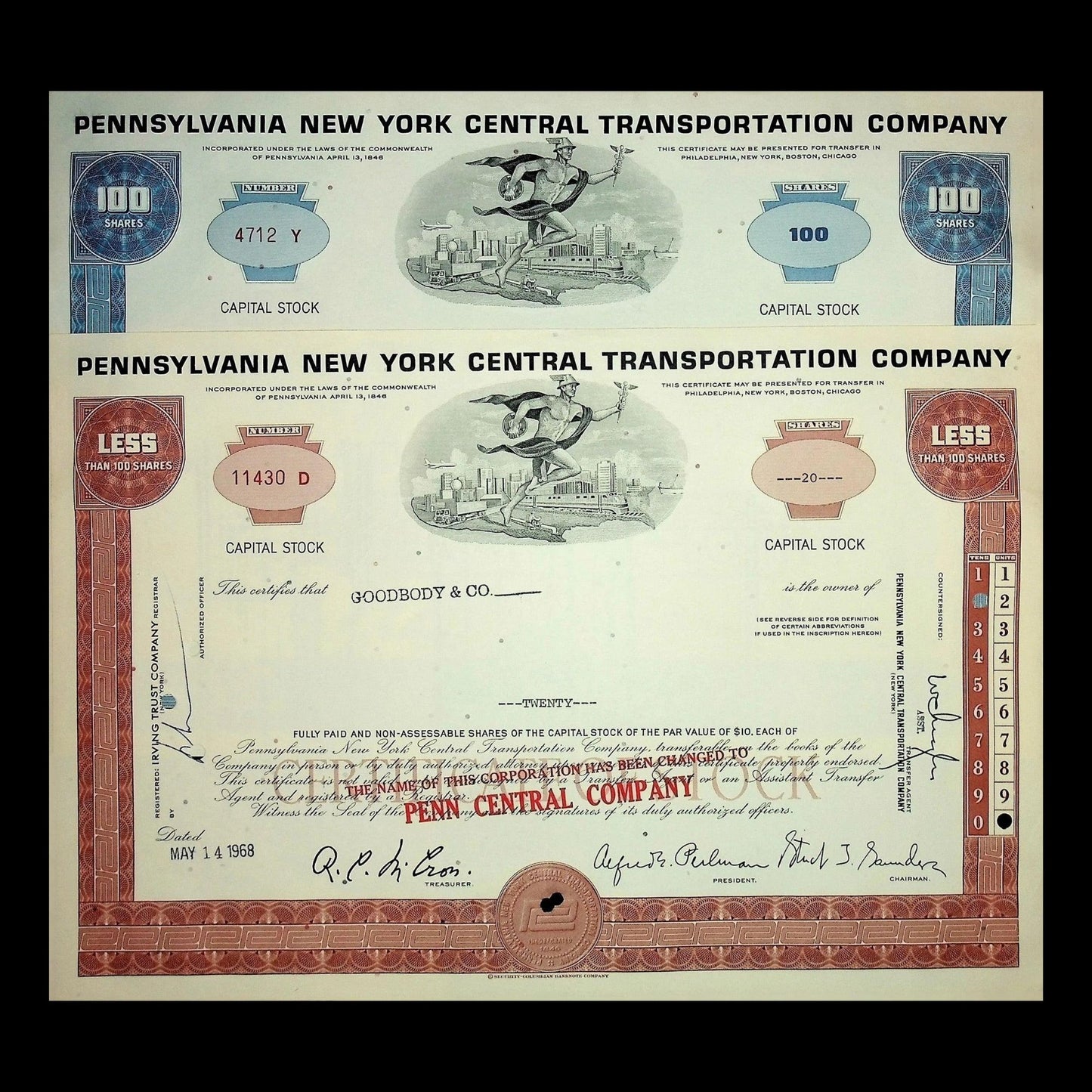
Discover 1,000s of Wall Street Collectables
Explore Our Collections
-
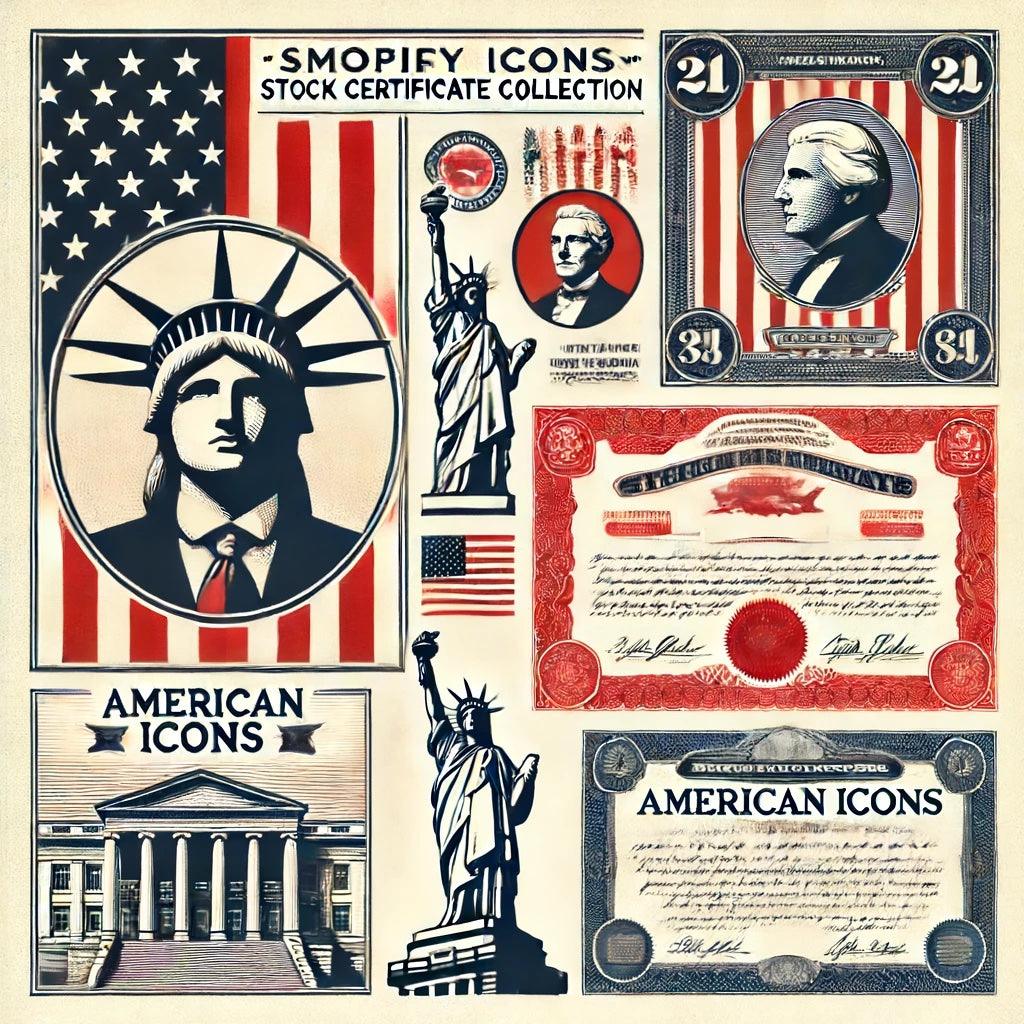
American Classics
Showcasing the evolution of American industry through beautifully engraved certificates from iconic...
-

Banks, Insurance & Investment
Discover the rich history of American finance with our collection of authentic...
-
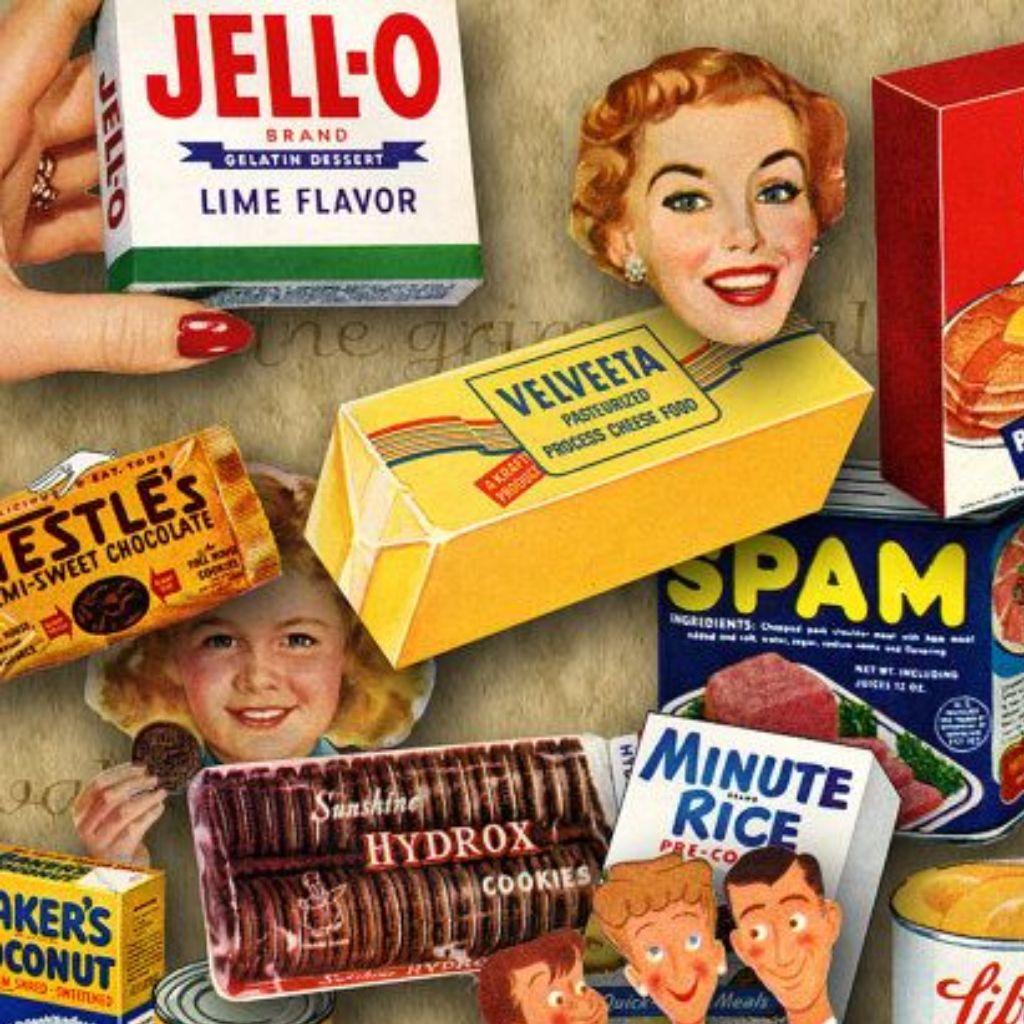
Food & Drink
Collectible Food & Drink Stock & Bond Certificates for Sale - Hershey's, Nabisco,...
-

Transportation
Discover our collection of collectable stock and bond certificates for sale from...
-
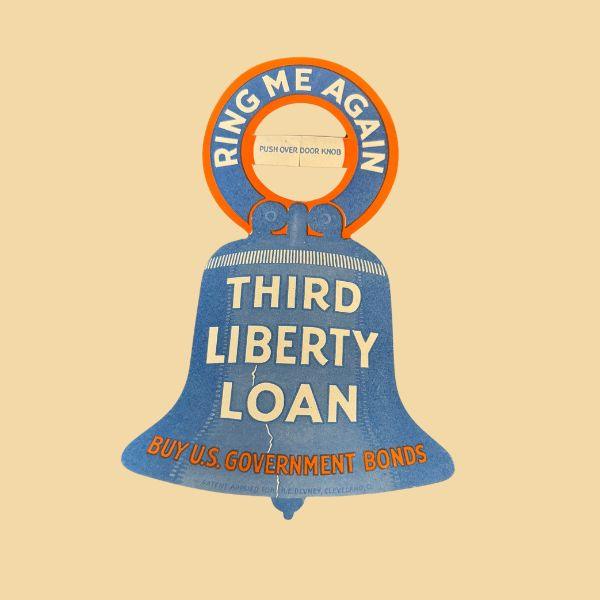
World Wars
Discover our unique collection of World War-era bonds and Disney wartime memorabilia,...




